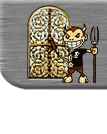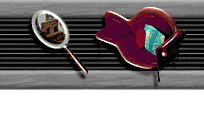





 |
 |
 |
||
 |
 |
 |
||
| |
|
|
|
|
| Home : Psychodynamic Module : Online Reading 3 | ||||||||||||||||||||||||||||||||||||||||||
Fight or FlightWe have emotional responses to the events in life. Once we become aroused, one of three states typically takes over.
People do not have gauges . . . so we may not realize we are coping instead of thinking. Dr. Paul MacLean's triune brain theory provides interesting insights into the complexities of human behavior. He postulates that the brain has acquired three drivers, all seated up front and all of different minds! In other words, it's as if an alligator, a gorilla, and a computer were driving the human system! We now know that under stress or when anticipating danger, the cerebellum or lowest and most primitive levels of the brain take control. According to MacLean, the primitive needs dictated by the Reptilian Brain include a sense of safety, survival and territoriality.. Like reptiles, cold-blooded and controlled by instinct, this part of our brain focuses on survival. This reptilian part of our brain is poorly equipped for learning to cope with new situations. and controls the behaviors associated with instinct and survival.
When a person is under stress, feeling fearful or angry, higher order thinking shuts down. LEVELING We can gain control over our emotions by recognizing and monitoring our affective responses. Leveling supports both feelings and cognitive processes. It is one of the best ways to acknowledge feelings to ourselves and then share them with others. We level when we let someone know we are hurt -- or afraid -- or that we are angry . . . were angry. Anger, bottled up, or fear that is kept hidden, seems to lead to more recurrences of anger. Anger is an important feeling, yet we often avoid admitting to ourselves or others that we are angry. In fact, when we are fuming we may not tumble to the fact until later. That makes leveling about anger even more difficult. . . and more critical Leveling, naming the feeling and telling ourselves or others how we really feel,means we are exploring true feelings for ourselves and sharing our bewilderment or discovery with others
When we are unwilling or unable to level about feelings, defenses take the place of honesty
A coward dies a thousand deaths --- A brave man dies but one - Shakespeare
Defense Mechanisms help us deal with feelings. This is a list of the most common.
|
||||||||||||||||||||||||||||||||||||||||||
|
"Do
it if it feels right"
|
"If
you can't say something nice,
don't say anything at all" |
| Shoot people who get in the way | Get into an accident rather than honk |
| Expel students who are disrespectful | Get reprimanded because of chaos in the classroom |
![]() Write a journal entry or draw a cartoon which depicts the ambiguous ways
that human nature is expressed.
Write a journal entry or draw a cartoon which depicts the ambiguous ways
that human nature is expressed.
![]() Make a continuum drawing showing the up and down sides of our strengths
and weaknesses
Make a continuum drawing showing the up and down sides of our strengths
and weaknesses

Self Acceptance
It sounds a little simplistic to discuss accepting ourselves. In reality, there are big snags that get in the way.
Another snag comes from the modeling of those around us. Perhaps a family member has derogatory names for a racial group or treated men or women in a derisive manner. We are often less aware of these messages, though they are just as embedded.
Finally, as we mature we grow into the ability to see and feel the needs and perspectives of others. As young children this capacity for second person perspective is very limited. As adults, we have the capacity to assess, reflect, and develop an individuated set of responses to achieve a balance that reflects who we are and what we believe.
MARTHA |
Merry
|
![]() Write a journal entry or draw a cartoon which depicts the way you
balance the negative and positive messages you get and pass on to
yourself.
Write a journal entry or draw a cartoon which depicts the way you
balance the negative and positive messages you get and pass on to
yourself.
![]() Make a life story and look for times that you have been given messages
about your strengths and weaknesses - see if you can determine which
you valued by keeping and believing them and which you discounted.
How are those habits or messages affecting you today?
Make a life story and look for times that you have been given messages
about your strengths and weaknesses - see if you can determine which
you valued by keeping and believing them and which you discounted.
How are those habits or messages affecting you today?
Go on to
Assignment 3
or
Go back to Assignment 2
Course Created by J'Anne Ellsworth & Center for Technology Enhanced Learning
Copyright
© 2001 Northern Arizona University
ALL RIGHTS RESERVED
 |
 |
 |
 |
 |
|